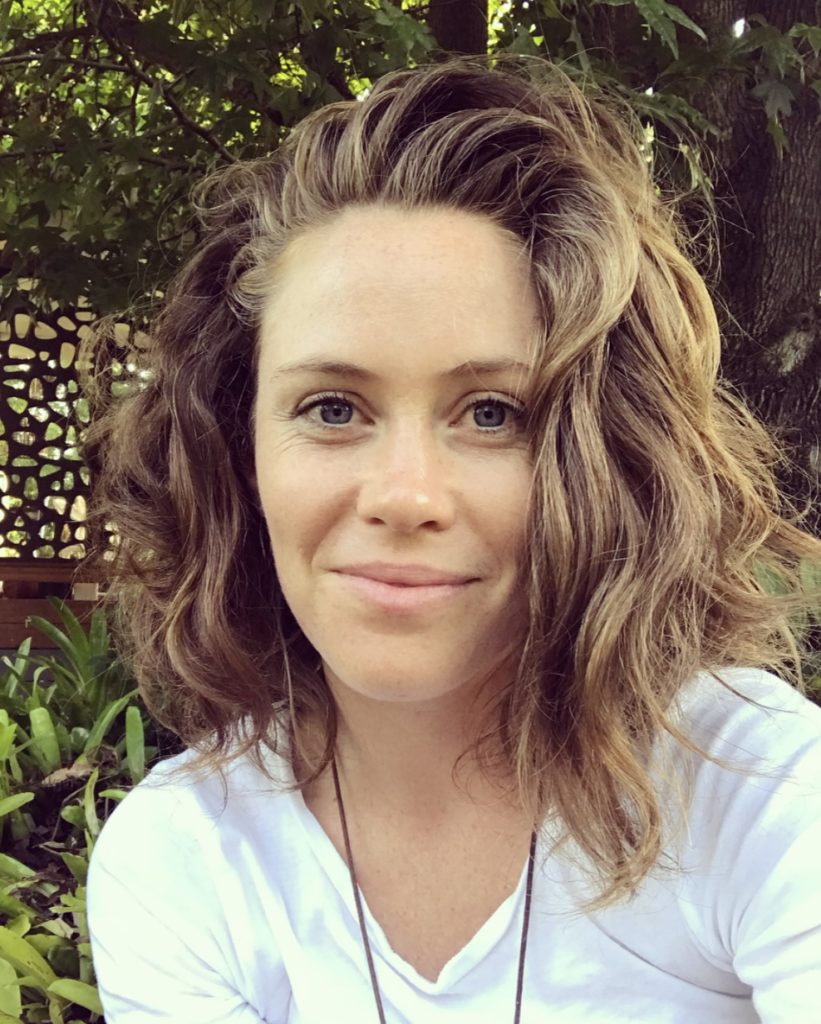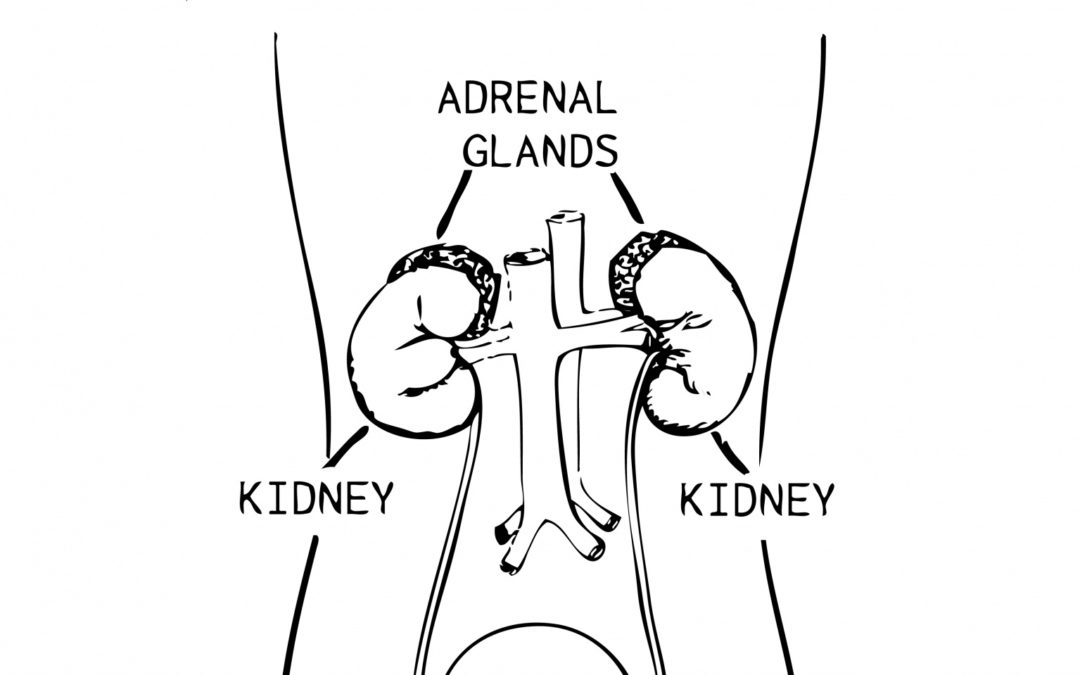
by Tanya Keam | May 2, 2023 | Acupuncture, Autoimmune, Bloating, Chinese medicine, Chronic fatigue, Client information, Digestive health, Health practitioner, Herbal remedies, IBS, Immune system, Inflammation, Loose stools, Nambour, Nourishing, Seasonal living, Sunshine coast
Digestive health in Chinese medicine is determined by the digestive symptoms we experience. The way food is prepared and cooked affects how we absorb nutrients. Our energy level, mood, body shape and muscle mass, flavour cravings, gyneocological problems and bowel movements tell us important information. Research is now suggesting a link between the gut-brain connection with conditions like Irritable Bowel Syndrome (IBS) (1) and the effects of our mental health and stress levels impacting our gut health. From a Chinese medicine point of view the way humans can overthink and worry in the mind, directly affects the digestion. Science is just now catching up with digestive health in Chinese medicine.
In Chinese medicine, a lot of emphasis is on the energetics of the spleen organ. What does the spleen do? Its job is to digest food, coagulate blood and metabolise fluid in the body. In other words, transform food and water into energy and then transport that energy around the body to make everything our body is made up of such as blood cells and muscle.
Because our core body temperate ranges from 35.9 to 37.2, the spleen does a much better job when cooked foods are eaten. Like our tummy is a nice warm cauldron. Having an icy cold smoothie, cold breakfast and cold water throughout the day make the spleen work harder by first using energy to warm up whats been ingested, then ‘transform and transport’. Going from a 19 degree fridge temperate (or even colder if you’re eating something frozen, to a 36.5 degree stomach temperature!) So its doing double the work! Symptoms that can arise are fatigue, bloating, excessive sweet cravings, soft and/or loose stools, poor muscle tone and deficiency of minerals and nutrients due to poor absorption.
It’s not to say every meal we have needs to be cooked. But a warm cooked breakfast such as eggs or oats, starts your day off well by keeping you fuller for longer (protein makes you feel fuller so daily eggs are a good option). Salads and raw fruit is still important to consume for vitamins and minerals but ease off on them in the cooler months, or have the salad at room temperature.
Cauldrons of soups, pots of fragrant teas, bowls of steaming rice and slow cooks stews are your best friend in the cooler months because no vitamins or minerals are lost in the cooking methods (like when steaming or blanching vegetables). Instead, all of the nutrients stay in the liquid. Warm meals keep us well and energised.
For people who cannot stomach food in the morning, this is due to the stress hormone cortisol being too high. Adrenaline kicks in when you wake up to get you going for the day because Cortisol is highest first thing in the morning. Often reaching for a coffee on an empty stomach stimulates adrenaline further and people live in this cycle of cortisol – adrenaline. If you have a job where getting up at 3.30am is your day, then you’re not going to be hungry because you’re body is suppose to be still asleep, but come 6-7am your stomach should be telling you to eat something by then. If you really do enjoy a morning coffee, aim for mid morning and have food with it so the caffeine isn’t triggering adrenaline and cortisol.
Ideally, waking up to hydrate with room temperature to warm water, then eat a warm breakfast between 7-9am is best for our digestive health in Chinese medicine theory. The spleen energy kicks in from 9-11am to do its T & T function. With daily exercise, daily bowel movements should be well formed and feel complete. If you need to wipe your bottom a lot or theres quite a lot of smell or mess in the toilet are you flush – your spleen is under-fuctioning like there is a “stickiness” in your stools. In Chinese medicine we call this dampness. Acupuncture and herbal medicine can quickly harmonise this. On the other hand if you’re bowels are irregular or sluggish then the body is absorbing waste back into the body – this can lead to liver problems and further bowel problems. Research has also shown that the warm therapeutic effect of moxibustion (burning compressed mugwort on or near a person’s skin) to help alleviate various conditions involving pain and discomfort, including IBS, showed moxibustion may also provide a benefit to IBS patients in 20 randomised-controlled trial results (2).
If you are suffering from digestive symptoms mentioned above or you believe you have poor digestion, have been diagnosed with inflammatory bowel, IBS or you’re aware stress and emotions are upsetting your stomach, please contact us today to discuss how we can help your digestive health at our Nambour Acupuncture clinic in the Sunshine Coast hinterland.
Hi, I’m T anya, an AHPRA registered Acupuncturist and health practitioner in Nambour in the Sunshine Coast hinterland, Queensland Australia. I practice Chinese medicine because its safe, logical, relevant and has effectively shown methods of natural wellness for thousands of years (read more about my training here). Life doesn’t need to be complicated and nor does the treatment approaches to get people feeling vibrant and well. I’ve seen people gain a lot from treatments, much more than just alleviating symptoms. It’s exciting to connect with people and share deep wisdom from the classics of ancient and traditional medicine, with modern protocols for todays mind-body living. See you in the clinic !
anya, an AHPRA registered Acupuncturist and health practitioner in Nambour in the Sunshine Coast hinterland, Queensland Australia. I practice Chinese medicine because its safe, logical, relevant and has effectively shown methods of natural wellness for thousands of years (read more about my training here). Life doesn’t need to be complicated and nor does the treatment approaches to get people feeling vibrant and well. I’ve seen people gain a lot from treatments, much more than just alleviating symptoms. It’s exciting to connect with people and share deep wisdom from the classics of ancient and traditional medicine, with modern protocols for todays mind-body living. See you in the clinic !
References:
- Harvard Health Publishing (2018). ‘The gut-brain: connection. At: ’https://www.ncbi.nlm.nih.gov/pmc/articles/PMC6111498/
- Mayo Clinic (2018). “Irritable Bowel Syndrome”. At: https://www.mayoclinic.org/diseases-conditions/irritable-bowel-syndrome/symptoms-causes/syc-20360016
- https://bmccomplementmedtherapies.biomedcentral.com/articles/10.1186/1472-6882-13-247#Sec7

by Tanya Keam | Jan 24, 2023 | Acupuncture, Adrenal Fatigue, Anxiety, Authentic self, Chinese medicine, Chronic fatigue, Daily Rituals, Exercise, Mental health, Nambour, Self care, Sleep, Spiritual growth, Stress, Sunshine coast
What is self care ?
You might think having a relaxing bath and exercising is self care, and it is. However self care for everyone is going to be different and there are many ways to take care our wellbeing.
Checking in with yourself to see how you are is a good place to start. Sitting down for 15 minutes, closing your eyes and focussing on your breathing will tell you if you’re conscious of your breathing or not. People often find it difficult to meditate so if this is you, just sitting or lying down and focussing on your breathing is a start. Inhale for 4 counts and exhale for 4 counts continually for 15 minutes. If this is difficult then start with 5 minutes. Does the inhalation feel the same as the exhalation? Or does one feel more restricted than the other?
Once here, ask yourself how you are.
What emotions are present right now? Have I been sleeping well lately? What has been upsetting me lately? Do I feel well in my body – my energy stamina, my digestion, do I have pain in my body? How have the last 3 months been going? The past year? How do I take care of my well being? Do I take care of myself at all? Do I reach for things to change how I feel? A glass of wine, substances? How do I handle stress?
As a Eastern medicine practitioner in the health industry I often ask people how they take care of themselves day to day and also when they aren’t feeling good.
Self care ideas you maybe haven’t thought of:
- Saying no to social events because you’re not up to it
- Calling friends to be around people you love for company
- Doing food prep so you have healthy meals through the week
- Asking a friend to help you with something
- Getting help with kids so you can have a few hours to yourself
- Seeing a therapist to talk about things
- Exercising every day to get the feel good chemicals going in your body
- Reducing your work or study load
- Taking time off work
- Resting at home – literally putting your feet up with a book
- Sleep
- Stepping away from unhealthy relationships or jobs
- Allowing yourself to cry and feel
- Magnesium bath
- Time in nature
- Taking a holiday
- Being conscious of your behaviours when you are stressed
- Prayer
- Meditation
- Doing your favourite hobbies
- Conscious breathing
- Staying off social media if peoples highlight reels are triggering
- Journaling
- Trying a new activity
- Asking for help
- Quiet days at home
- Going for a health treatment such as acupuncture to balance your nervous system
- Reducing or completely removing alcohol and substances
- Slowing your life down, simplifying things
Life can get on top of us sometimes. Checking in with yourself every day by practicing self care is loving yourself. Your self care isn’t going to look the same as someone else’s self care but know there are many ways to nourish your body, mind and spirit. Give yourself time and space to move through things that are happening in your life.
 Hi, I’m Tanya Keam, an AHPRA registered Acupuncturist and natural health practitioner in Nambour in the Sunshine Coast hinterland, Queensland Australia. I practice Chinese medicine and Acupuncture because its safe, logical, relevant and has effectively shown methods of natural wellness for thousands of years (read more about my training here). Life doesn’t need to be complicated and nor does the treatment approaches to get people feeling vibrant and well. I’ve seen people gain a lot from treatments, much more than just alleviating symptoms. It’s exciting to connect with people and share deep wisdom from the classics of ancient and traditional medicine, with modern protocols for todays mind-body living. If you need some guidance in practicing better self care get in touch or book online today.
Hi, I’m Tanya Keam, an AHPRA registered Acupuncturist and natural health practitioner in Nambour in the Sunshine Coast hinterland, Queensland Australia. I practice Chinese medicine and Acupuncture because its safe, logical, relevant and has effectively shown methods of natural wellness for thousands of years (read more about my training here). Life doesn’t need to be complicated and nor does the treatment approaches to get people feeling vibrant and well. I’ve seen people gain a lot from treatments, much more than just alleviating symptoms. It’s exciting to connect with people and share deep wisdom from the classics of ancient and traditional medicine, with modern protocols for todays mind-body living. If you need some guidance in practicing better self care get in touch or book online today.

by Tanya Keam | Apr 6, 2021 | Acupuncture, Adrenal burnout, Adrenal Fatigue, Chinese medicine, Chronic fatigue, Client information, Daily Rituals, DIY Wellness Tips, fertility acupuncture, Health practitioner, Mental health, Nambour, Sunshine coast
What is Adrenal Fatigue?
The Adrenal glands belong to the Endocrine System where they produce a variety of hormones that are essential to life. The medical term “Adrenal Insufficiency” is an inadequate production of one or more of these hormones as a result of underlying conditions. Whereas, Adrenal Fatigue isn’t an accepted medical diagnosis, it is thought that adrenal fatigue is caused by stress on the body where the adrenal glands cannot cope with the constant pace of fight-or-flight (sympathetic) nervous system response. adrenal fatigue acupuncture sunshine coast
tSigns and symptoms of adrenal insufficiency:
- Fatigue
- Body aches
- Unexplained weight loss
- Loss of body hair
- Skin discolouration
- Lightheadedness
- Low blood pressure
- Low production of hormones
Diagnosis for adrenal insufficiency can be tested to show inadequate levels of adrenal hormones.
In Traditional Chinese Medicine, adrenal fatigue is burnout. The kidney is the organ that stores our vital energy called Qi. We are all born with varying amounts of energy based on genetics, this is called out ancestral energy. This energy manages our reproduction, ageing, vitality and emotional-physical endurance. The day to day living of healthy food, exercise, relationships, environment and work/life balance is what maintains the kidney energy.
The less ancestral and vital kidney force you have (based on your lifestyle and if you’re over doing it), the sooner the chance of adrenal burnout. Chipping away at the kidney qi from too much stress, working too much without rest, living in the fight-or-flight (sympathetic) nervous system response WILL lead to adrenal burnout. When burn out is not addressed or the body is under continual strain over many years, there is a place that we cannot come back from. This leads to chronic health problems and the biggest symptom is long-term fatigue (exhaustion). The body is remarkable its in communication. Symptoms tell us something is wrong!
General fatigue can come and go, so having a holiday or some restful days off usually helps you to feel better naturally. Even having a blood test to check on a few things (such as iron levels) might be a simple explanation of fatigue. Adrenal fatigue however doesn’t just happen over night. It takes months or more of stress and over doing it to reach a point where the adrenal glands can’t keep going under pressure.
Traditional Chinese Medicine diagnoses adrenal fatigue based on multiple symptoms in relation to the energy of the kidney system. These can include :
- Fatigue and/or exhaustion
- Needing to sleep during the day after 8 hours of sleep at night
- Relying on coffee for energy
- Body aches
- Lower back pain
- Muscle weakness
- Lightheadness
- Shortness of breath
- Feel worse after exercise
- Loss of body hair or hair falling out
- Lack of concentration, focus or recall
- Low blood pressure
- Slow pulse rate
- Decreased libido
- Difficulty falling pregnant
- Thyroid imbalance
- Getting sick often or taking a long time to recover from illness
- Low blood sugar symptoms
- Waking early in the morning regularly at 4am
- Craving salty foods
- Emotional and mental instability such as anxiety
How does Traditional Chinese Medicine support someone with adrenal fatigue?
- Seeing a registered Acupuncturist allows you to receive the correct type of treatment based on their qualifications and experience. Adrenal fatigue acupuncture sunshine coast.
- Traditional acupuncture stimulates the internal healing response in the body to help the nervous system self regulate.
- Herbal medicine is prescribed based on the individual patient to support the energetics of the kidney and adrenal health.
- Moxibustion is a heat therapy used with acupuncture to further strengthen and support the bodies healing response.
- Correcting nutritional and mineral deficiencies to support optimal health.
- Lifestyle recommendations to support where the person is at. They may need a referral to a therapist to talk and gain some strategies to help cope with the demands that lead to adrenal burn out. Or something simple like gentle yoga exercises and breathing techniques to connect mind and body again. Life can get on top of you sometimes, so seeing a health practitioner, talking with someone close to you or a professional might be helpful.
What does rest look like?
- Sleep and naps during the day
- Time in nature
- Health treatments – having someone take care of you to rebalance your system
- Setting boundaries and changes to work-life balance
- Time off work
- Doing one thing at a time such as solely watching a movie, while you’re not on your phone or multitasking other things at the same time
- Laying down, putting your feet up with a book
- Time away from electronics and notifications from smart phones
- Asking for help
- Taking a holiday away from your regular environment
- Sitting down to eat, chew slowly, consciously taste and enjoy the food
- Gentle exercises to connect mind and body such as meditation, yoga, tai chi, qi gong, walks in nature all support the parasympathetic nervous system
To maintain the ancestral energy, we need to take care of ourselves with healthy food, exercise, quality sleep, managing stress and most importantly learning to rest.
If you are suffering from fatigue or you believe you may have adrenal fatigue please contact us today to discuss how we can help your adrenal fatigue at our Acupuncture clinic on the Sunshine Coast.
 Hi, I’m Tanya, an AHPRA registered Acupuncturist and health practitioner in Nambour in the Sunshine Coast hinterland, Queensland Australia. I practice Chinese medicine because its safe, logical, relevant and has effectively shown methods of natural wellness for thousands of years (read more about my training here). Life doesn’t need to be complicated and nor does the treatment approaches to get people feeling vibrant and well. I’ve seen people gain a lot from treatments, much more than just alleviating symptoms. It’s exciting to connect with people and share deep wisdom from the classics of ancient and traditional medicine, with modern protocols for todays mind-body living. See you in the clinic !
Hi, I’m Tanya, an AHPRA registered Acupuncturist and health practitioner in Nambour in the Sunshine Coast hinterland, Queensland Australia. I practice Chinese medicine because its safe, logical, relevant and has effectively shown methods of natural wellness for thousands of years (read more about my training here). Life doesn’t need to be complicated and nor does the treatment approaches to get people feeling vibrant and well. I’ve seen people gain a lot from treatments, much more than just alleviating symptoms. It’s exciting to connect with people and share deep wisdom from the classics of ancient and traditional medicine, with modern protocols for todays mind-body living. See you in the clinic !

 anya, an AHPRA registered Acupuncturist and health practitioner in Nambour in the Sunshine Coast hinterland, Queensland Australia. I practice Chinese medicine because its safe, logical, relevant and has effectively shown methods of natural wellness for thousands of years (read more about my training here). Life doesn’t need to be complicated and nor does the treatment approaches to get people feeling vibrant and well. I’ve seen people gain a lot from treatments, much more than just alleviating symptoms. It’s exciting to connect with people and share deep wisdom from the classics of ancient and traditional medicine, with modern protocols for todays mind-body living. See you in the clinic !
anya, an AHPRA registered Acupuncturist and health practitioner in Nambour in the Sunshine Coast hinterland, Queensland Australia. I practice Chinese medicine because its safe, logical, relevant and has effectively shown methods of natural wellness for thousands of years (read more about my training here). Life doesn’t need to be complicated and nor does the treatment approaches to get people feeling vibrant and well. I’ve seen people gain a lot from treatments, much more than just alleviating symptoms. It’s exciting to connect with people and share deep wisdom from the classics of ancient and traditional medicine, with modern protocols for todays mind-body living. See you in the clinic ! 

